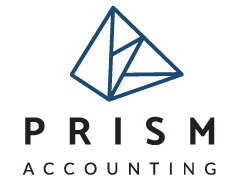From 1 July 2017, residential rental property investors are no longer able to claim deductions for travel expenses and decline in value of certain previously used depreciating assets in relation to income from provision of residential premises as residential accommodation.
Who is affected?
The change affects investors who produce assessable income from a property that both satisfies the definition of “Residential Premises” and is used as residential accommodation.
The term “Residential Premises” under the tax law is broad and means land or a building that is either occupied or intended to be occupied, and is capable of being occupied, as a residence or for residential accommodation (regardless of the term of the occupation) and includes a floating home.
This definition is adopted from the GST law and has been subject to legal scrutiny. Whether a property is classified as residential premises depends on physical characteristics of the property. Subjective intention of a person not to use premises for residential accommodation is not relevant. The term captures any property that provides shelter and basic living facilities and is either occupied by a person or designed for occupation. It does not, however, include premises that are not designed for living in, such as business premises, hospitals or caravans.
The restrictions of claiming travel and depreciating expenses only apply to residential premises that are used as residential accommodation. That is, if the residential premises are used for other income-producing activities (for carrying on a business), deduction may still be available.
When the restrictions do not apply
Carrying on a Business
Deduction is not denied for travel expenses that are necessarily incurred for carrying on a business; or for depreciating assets that are used or installed ready for use in the course of carrying on a business. In other words, if a person is carrying on a business of providing residential accommodation, deductions are still claimable.
However, taxpayers should be warned that holding an ABN does not automatically mean they are carrying on a business. Whether you are in business of renting out properties or a mere investor depends on particular circumstances of your case. Unfortunately, there is no hard and fast rule to provide clear guidance when a taxpayer is considered to be carrying on a business. This needs to be assessed on case by case basis taking into account all factors, none of which is determinative. Some of the factors include:
– scale of the activity
– regularity and repetition of the activity
– extent of personal involvement in the activity
– whether the activity is conducted in business-like manner
Exception – Kind of Entity
There is a specific exception (carve-out) excluding certain kinds of entities from application of deduction denying provisions.
Entities to which restrictions do not apply are:
– corporate entities
– superannuation plans other than SMSF
– managed investment trusts
– public unit trusts
– unit trusts or partnerships where each member is one of the above.
This exception is mirrored in both s.26-31 (regarding travel expenses) and s. 40-27 (regarding depreciating assets).
Travel expenses
Traditionally, rental property investors could claim general deduction (under s. 8-1 of the ITAA 1997) on travel expenses (e.g. car expenses, airfare, accommodation costs), including expenses for, but not limited to, inspecting the property, conducting repairs & maintenance, collecting rent, prepare property for rent and undertaking improvements.
Following the amendments, travel expenses incurred in gaining or producing assessable income from the use of residential premises as residential accommodation are now denied (under s 26-31 of the ITAA 1997).
In addition, these travel expenses cannot form part of the cost base of the asset for CGT purposes.
Depreciation expenses
The application of new depreciation restriction (under s 40-27 of the ITAA 1997), which came into effect 1 July 2017 (2018 income year), depends on the date of acquisition of the depreciating assets. The new rules apply in the following circumstances:
– Assets acquired on or after 7:30 pm AEST on 9 May 2017. If the asset is acquired as part of the property, the relevant date is date the contract was entered into (not the date of settlement).
– Assets acquired before 7:30 pm AEST on 9 May 2017 that were used for non-taxable purpose (e.g. private purpose) where no depreciation deduction was available in 2017 income year. It should be noted that where at least some depreciation claim was available (e.g. on pro-rata basis), the restriction does not apply.
The new rule denies deduction for decline in value of depreciating assets used to produce income from residential premises provided as residential accommodation:
– if the asset was previously used or installed ready for use by another entity other than as trading stock (in other words, purchased as a second-hand item); OR
– if you held the asset as at 9 May 2017, it was used (or installed ready for use) at any time during 2017 or an earlier income year in premises that were your residence at that time or that were used for non-taxable purpose.
Exception – New residential premises
The restriction for claiming deduction does not apply to new residential premises where depreciating assets were acquired as part of the property, provided no entity was residing in it and no amounts can be claimed by the previous owner for these assets under capital allowances provisions in Division 40 or Subdivision 328-D (Small Business Concessions).
If another entity was residing in it and the property was acquired within 6 month period from the date premises became new residential premises, the exception still applies and deduction may still be available.
The restriction does not apply to depreciating assets already allocated to a low-value pool.
CGT Implications
Similar to travel expenses, depreciation expenses that are denied under the new amended provisions, cannot form part of the cost base or a reduced cost base of a CGT asset.
However, when the asset is sold, balancing adjustments trigger a separate capital loss (K7 event). The timing of the event is different to the timing of the CGT event for the main asset. That is because when CGT asset is sold, the CGT event occurs at the time of contract, whereas the balancing adjustment to depreciation assets occurs on the date of settlement.
Difference in timing does not create a problem when the contract and the settlement occur in the same income year. In that case, capital losses on disposal of depreciating assets will be offset against capital gains made on disposal of property. However, when property settlement happens in the subsequent year, the capital loss can not be offset against capital gains (which would be declared in the prior period) and will not be utilised until another capital gain is made by the entity.
Date of effect
The amendments received royal assent on 30 November 2017 and are now law.
Disclaimer: All the information provided on this website is of general nature and does not constitute tax, legal or financial advice. It does not take into account your personal circumstances and is not intended to replace consultation with a qualified professional.







